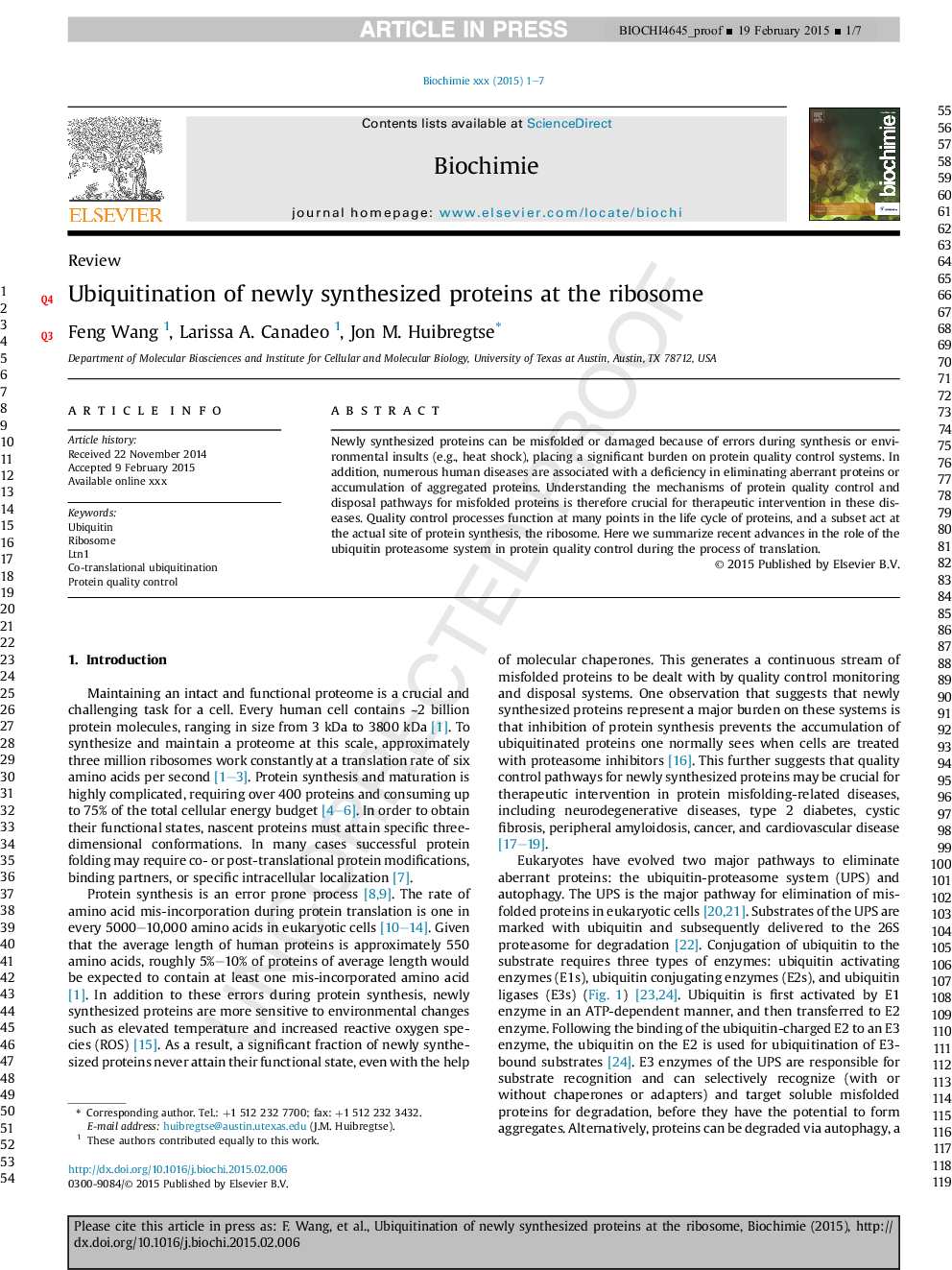| Article ID | Journal | Published Year | Pages | File Type |
|---|---|---|---|---|
| 8304921 | Biochimie | 2015 | 7 Pages |
Abstract
Newly synthesized proteins can be misfolded or damaged because of errors during synthesis or environmental insults (e.g., heat shock), placing a significant burden on protein quality control systems. In addition, numerous human diseases are associated with a deficiency in eliminating aberrant proteins or accumulation of aggregated proteins. Understanding the mechanisms of protein quality control and disposal pathways for misfolded proteins is therefore crucial for therapeutic intervention in these diseases. Quality control processes function at many points in the life cycle of proteins, and a subset act at the actual site of protein synthesis, the ribosome. Here we summarize recent advances in the role of the ubiquitin proteasome system in protein quality control during the process of translation.
Related Topics
Life Sciences
Biochemistry, Genetics and Molecular Biology
Biochemistry
Authors
Feng Wang, Larissa A. Canadeo, Jon M. Huibregtse,
